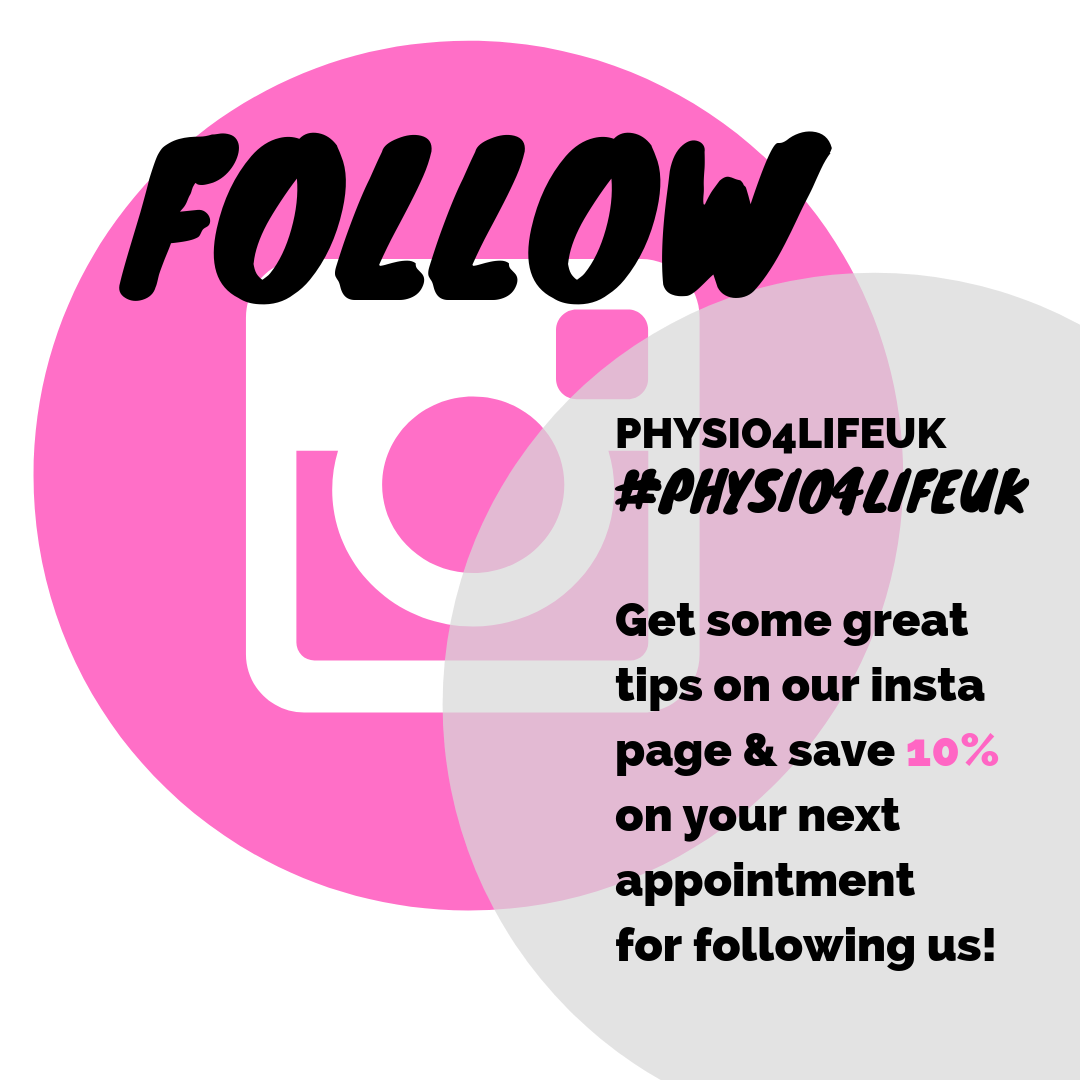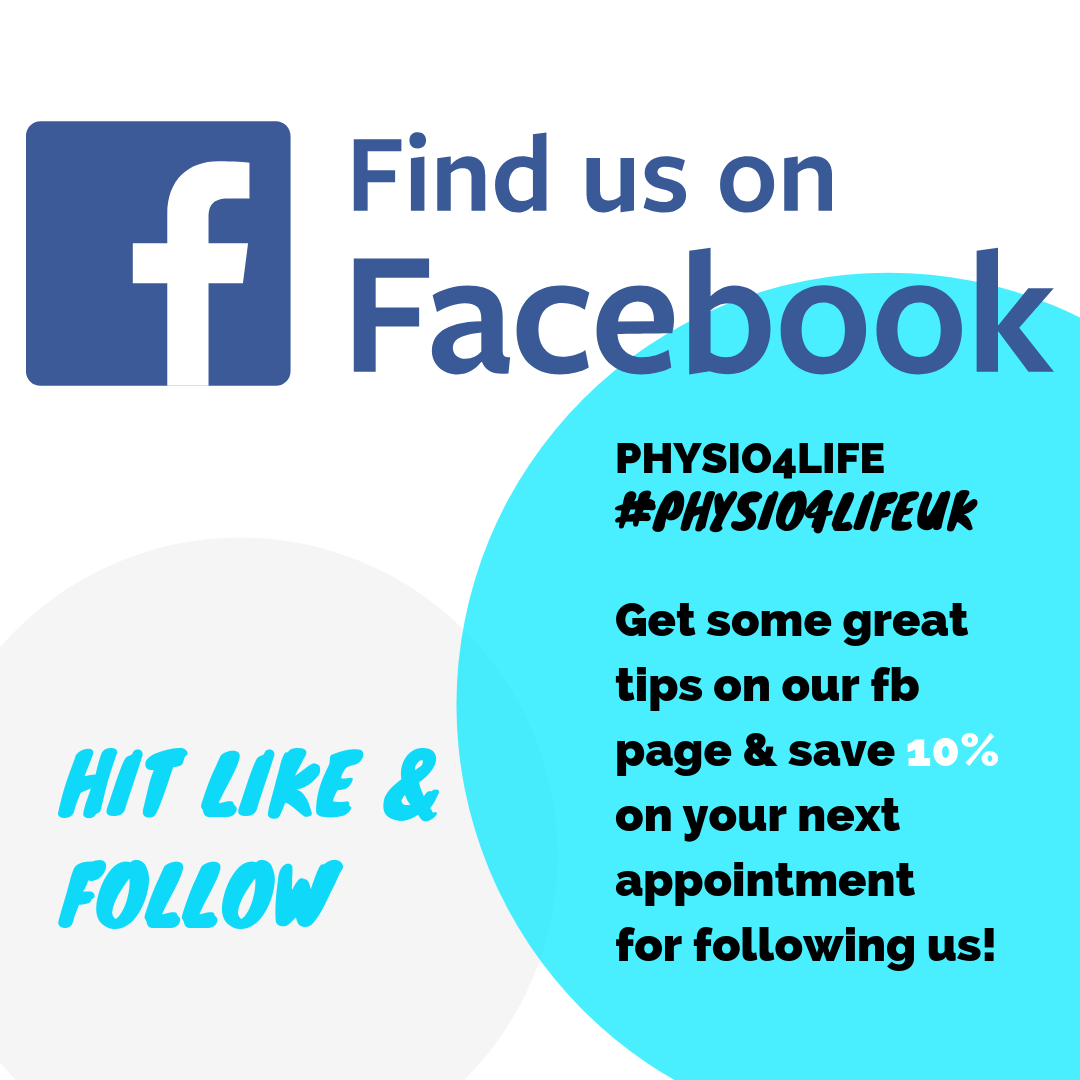
Whether you participate in sports or have sustained an injury – Ankle injuries can be extremely dehabilitating and painful. Ankle sprains, strains, twisted ankle, tendon injuries – Physio4Life can help with your ankle injury.
Steph Davies
BSc (Hons) MSc Sport Ex Med MCSP
Specialist Sports Physiotherapist
Q. You’ve just found out you’re pregnant and you regularly run. What should you do? Can you continue running?
A. Firstly, congratulations! Pregnancy can be an exciting time and it doesn’t mean that you have to immediately give up things that you enjoy. If you are already a regular runner and don’t have any other health complications, continuing to run in early pregnancy can have many health benefits including maintaining muscle tone and cardiovascular fitness. This can help your body cope with the demands of pregnancy and labour.
However, you must be realistic about your running goals – aim to run within your comfort zone; now is not the time to be competing or entering races. Avoid overheating as this can cause harm to the unborn baby. Your body will be going through a rollercoaster ride of hormonal changes in the first few months, so don’t be surprised if you feel too sick and tired to run! If in doubt, check with your GP.
Q. What if you’re pregnant and want to start running. Is it OK to do so if you take it slowly and build up gradually?
A. If you don’t already run, your body will not have adapted to the demands of running so it is not a good time to start. Instead, 30 minutes a day of brisk walking is a great way of staying active whilst pregnant, and is much easier on your joints.
Q. How will the body changes you’ll go through as a pregnant woman affect the way you run? Will they slow you down or leave you more predisposed to injury?
A. During pregnancy there is a release of the hormone relaxing, which loosens the ligaments in your body in preparation for childbirth. This extra laxity can increase your chances of injury. It is important to ensure your running shoes are supportive and that your alignment is well trained. It is usually advised that in the third trimester, running is substituted with low-impact exercise such as swimming or walking.
As your pregnancy progresses, the quantity of oxygen used per minute at any given walking speed increases by 10% to meet the demands of your unborn baby. This may leave you feeling more out of breath than usual.
Running can put additional pressure on the muscles of the pelvic floor, so frequent pelvic floor strengthening exercises are essential to prevent incontinence problems during pregnancy or after childbirth. A physiotherapy specialist in Women’s Health can help you with this.
You may also have already noticed an increase in breast size and tenderness, so a good supportive sports bra is a must!
Q. What things do you need to be aware of if you decide to continue running when pregnant? Do you need to take on more of certain nutrients, should you take supplements, or should you up your calorie intake?
A. Supplements or vitamins designed specifically for pregnancy are a good idea, whether you are running or not. A calcium-rich diet high can help prevent osteoporosis (brittle bones). Also make sure you stay well hydrated and remember not to overheat.
Calorie intake does not have to be increased in the early stages if you are exercising at the same level to what you used to. However, it is certainly not the time for dieting as a lack of nutrients can harm your baby’s development.
Q. How will keeping fit and healthy during pregnancy help you when it comes to having the baby? Are there any benefits to keeping up with your running whist pregnant?
A. Research has shown that women who exercise regularly may have an easier labour. Running is an excellent way of building up stamina, which will definitely be needed once the baby arrives!
Q. When you have had the baby, how soon can you return to running?
A. Childbirth and pregnancy puts a lot of strain on the body, especially the joints and muscles around the pelvis, low back and abdomen. It is not advisable to return to running before discussing it with your GP at your six-week post-natal check up.
Q. How much should you reduce your time / distance when you run?
A. Exercise after childbirth should be resumed gradually. Everybody is different and the most important thing is that you don’t overdo it and end up exhausted or unwell. Warning signs include extreme fatigue, long recovery times between exercise and an increase in post-natal bleeding.
Q. What other factors should you bear in mind?
A. You will be fatigued from pregnancy, childbirth and looking after your baby, so running will be low on your priority list. Your body needs a chance to recover! The most important exercises to resume after pregnancy are your pelvic floor exercises.
Q. Does the fact that running is high impact affect your body in a negative way after having a baby?
A. When your joints and ligaments are recovering you will have less shock absorption making you more prone to injury. When you eventually feel ready to return to running, get checked by your GP first, and a Women’s Health physiotherapist who can assess whether your pelvic floor and core muscles will handle return to impact.
Q. Would you be better off sticking with other sports that are non-impact?
A. The NHS recommends that the best forms of exercise to begin after childbirth are pelvic floor exercises, brisk walking with the buggy and specific post-natal exercise classes. These can accommodate the issues facing a new mum wanting to return to fitness.



